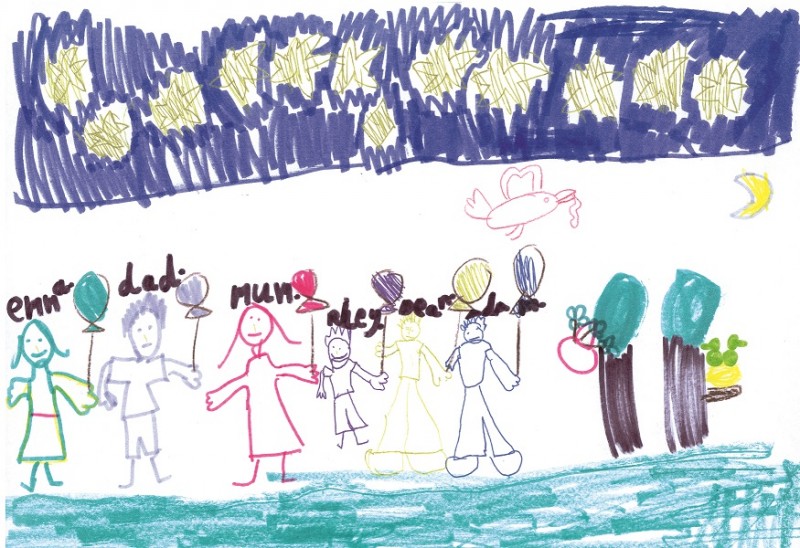A Guide to Help Your Grieving Children

“We tell children about the birds and the bees but we don’t really let them know about what happens when they stop flying. Death is a part of life and when people stop thinking of it as a taboo subject we can all be much more genuine. We should be able to express exactly what we feel without thinking someone will judge us.”1 [Walter Mikac 8/6/2000 (Husband of Nanette, father of Alannah and Madeline, all of whom died 28/4/1996)]
When a child dies suddenly and unexpectedly, it has an impact on the whole family. Like you, your surviving children will be deeply affected by the death of their brother or sister. As much as you would wish, you cannot take away their grief. In the past, you have probably been able to comfort your children about any loss or hurt – it’s what parents want to do for their children. It is distressing to find that you cannot do the same now; however, there are different ways in which you can help and comfort your surviving children.
This section of the website shares the thoughts of parents who have experienced the sudden and unexpected death of a child through SUDI, accident, sudden onset illness, stillbirth and other perinatal deaths. These parents hope that their experiences may help guide you in providing support to your grieving children.
In the early days, it may be too hard to concentrate on all the information given to you. We suggest you start by focussing on those sections that are most relevant to you.
Remember that children, no matter what their age, are unusually sensitive to the emotions of the adults around them and will imitate these reactions, especially in unfamiliar situations. As a parent, you can be a role model for your grieving child. Your display of real emotions, such as tears, controlled anger, or fear, does not harm them. What can be harmful is denying your grief, refusing to talk or not letting others talk about the death. While it is helpful for you to be open about your feelings, we all need to find the approach that suits us best. It is not possible to protect your child from reality but it can be possible to show, by example, how pain and loss are experienced and ultimately survived.
There are no answers
Often mothers and fathers feel that if they can only answer their children’s questions in the ‘right’ way, or say and do the ‘right’ things, then their children will not suffer. Yet you, as a parent, also know that there are no satisfactory answers to your own questions, no instant cure for your own grief. The same holds true for your children.
After the death of your child, you may find yourself placed in the position of trying to explain to your surviving child or children something that you yourself don’t understand. It is okay to tell your children, “I can’t give you an answer, there is no explanation,” or “No, it isn’t fair that this happened to your brother or sister,” or “I worry about that, too.”
What is important is to accept the way your child grieves. Like adults, children show their grief in different ways. In whatever way they choose to express their grief - you may observe changed behaviour or ‘acting out’ - children need to know that their feelings will not be discounted or considered unimportant. Do not underestimate what most children can grasp about death. Depending on their age, they can usually absorb the information and adjust it to fit their understanding of what happened.
This article was prepared using extracts from What about the Other Kids?2 The full text is available online or contact Red Nose Grief and Loss Services on 1300 308 307 for a printed version.
Last reviewed: 27/4/24
Share
1. Mikac, W. (2008, July). Opening address. Delivered at the 8th International Conference on Grief and Bereavement in Contemporary Society, Melbourne, Vic.
2. Bereaved Parents & SIDS and Kids. (2005). What About the Other Kids? A Booklet by and for Parents of Children whose Brother or Sister has Died (D. Same, Com., M. Bannan, A. Faulkner, J. Foong, S. Foong, J. Frisina, L. Green, R. Green, …& H. Wilson, Illus.). Malvern, Vic.: SIDS and Kids.



